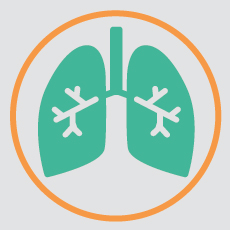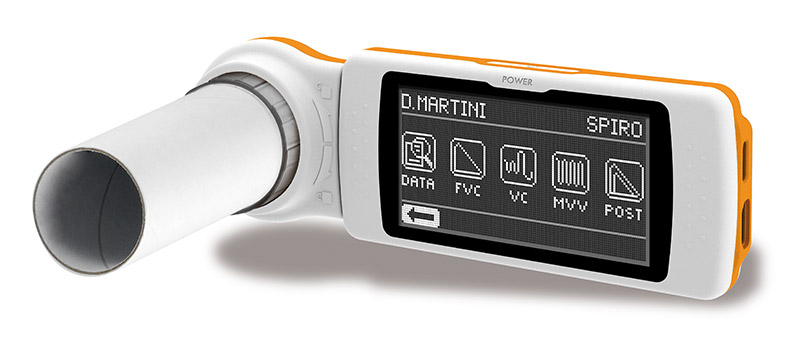What is lung function test/Pulmonary function test/spirometry?
Pulmonary Function Test or lung function test are a broad range of non ? invasive diagnostic tests that measure how well the lungs take in and exhale air .This helps to determine how efficiently lungs transfer oxygen into the blood.The tests help the Chest Specialist evaluate as to the type of lung disorder or respiratory disease if any the individual might be suffering from.
Why is PFT performed?
PFTs may be ordered
- In healthy individuals as part of a routine physical Examination.
- In others, when a specific illness is suspected.
- It is also performed to evaluate the progress in treatment and the effect of medication on the respiratory disease.
- PFTs is also used to assess the lung function of patients prior to surgery or other invasive procedures in patients who have current lung and/or heart problems, who are smokers, or who have other conditions that might be affected by surgery or other procedures.
Some of the disorders that may be detected with PFTs include, but are not limited to, the following:
- Chronic lung conditionseg asthma, bronchiectasis, COPD – emphysema, and chronic bronchitis
- Asbestosis
- Chest trauma
- Restrictive airway conditions. Impaired lung expansion as a result of conditions, such as scoliosis, Lung Cancer or inflammation or scarring of the chest wall.
- Respiratory infectionseg Pneumonia ,Pulmonary Tuberculosis
There may be other reasons for your Chest Specialist to recommend pulmonary function tests.
How is PFT performed?
- Spirometry ? This is a short, simple breathing test requiring you to take a deep breath and blow out hard into a mouthpiece. The spirometer records how much and how fast you blow air out of your lungs. You usually have to do this at least three times to get your best effort. The test takes about 15 minutes and the results are immediately available for your visit with the lung specialist. If your doctor wants you to do the test before and after a bronchodilator, an inhaled medication that relaxes the muscles around your breathing tubes in your lungs, the test will take a total of about 30-40 minutes
- Body Plethysmography- In this the patient is asked to sit in a transparent, sealed box and to breathe into a mouthpiece. The lung volume is determined with the help of the variation of PFT pressure inside the chamber. Another procedure for this lung function test involves the patient?s breathing helium or nitrogen gas through a tube. This tube is attached to a chamber and in which the concentration of the helium or nitrogen gas is measured to determine the volume of the lungs.
- Lung diffusion capacity- In this patient is asked to breathe in a harmless gas, also called a tracer gas, mostly for just a single breath. The amount of gas that the patient breathes out is measured and the difference between the amount of gas inhaled and exhaled is determined. This difference allows the doctors to determine how effectively oxygen is passed from the lungs to the bloodstream.
Who performs the test?
A pulmonary function test procedure is usually carried out by a PFT technician or a Respiratory Therapist. In some cases a Lung Specialist supervises the test.
What are the risks of the procedure?
PFT Test is a safe procedure generally. However, a few complications are:
- Light-headedness or fainting due to the heavy and rapid breathing
- For an asthmatic patient, taking this test might lead to an asthmatic attack
- In very rare cases, this procedure may result in a collapsed lung
Who should not take the procedure?
Individuals who have recently had a heart attack or some other heart disease, undergone a chest, abdominal or eye surgery or are suffering from a respiratory infection are advised not to take a pulmonary function test.
Anything else I need to know?
PFT is a painless procedure.It takes approximately 30 to 40 minutes and you can go home immediately after the test if the results are normal. If the results are abnormal, you need to see a Chest Physician to discuss the results and further course of action.


